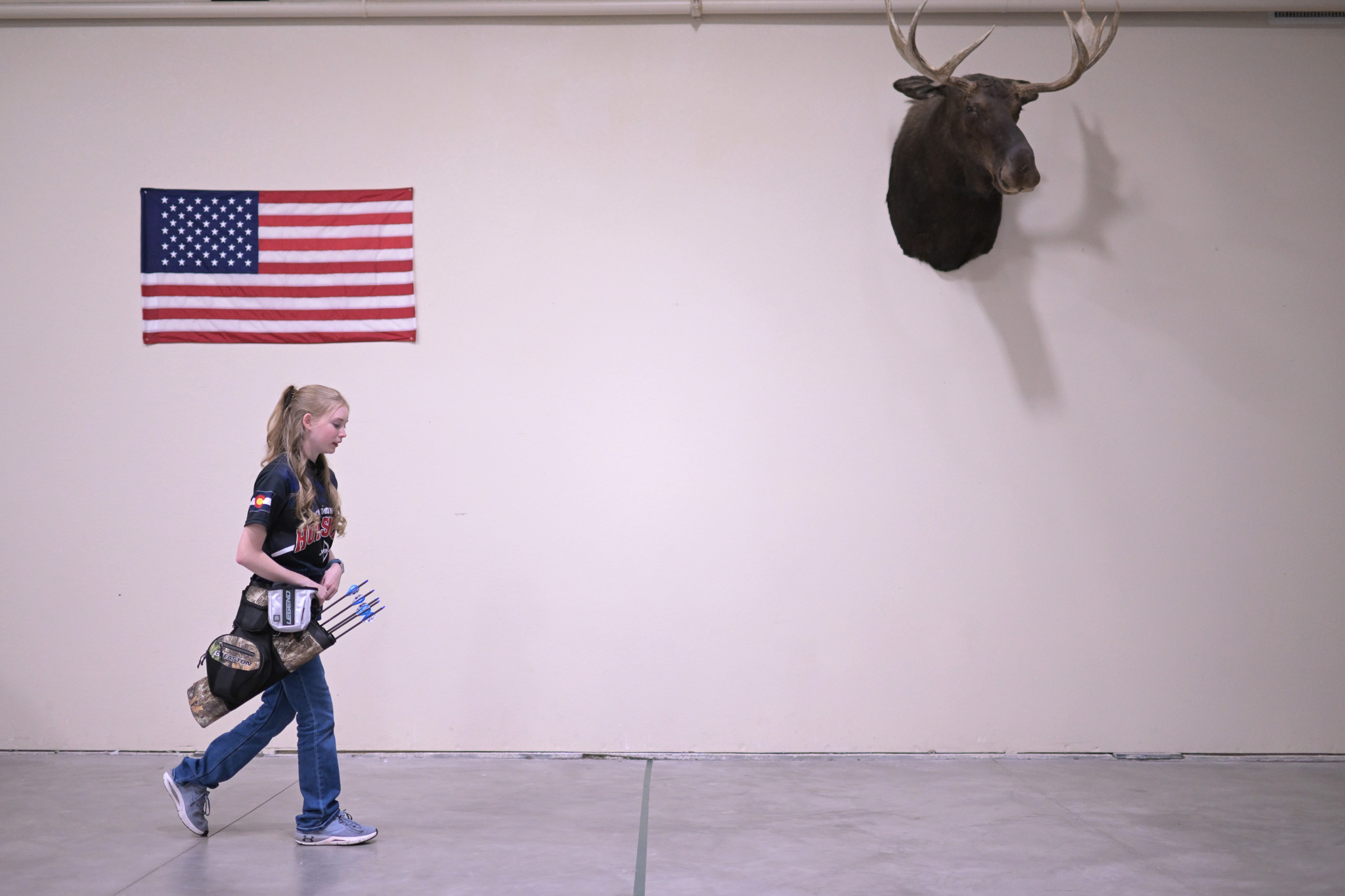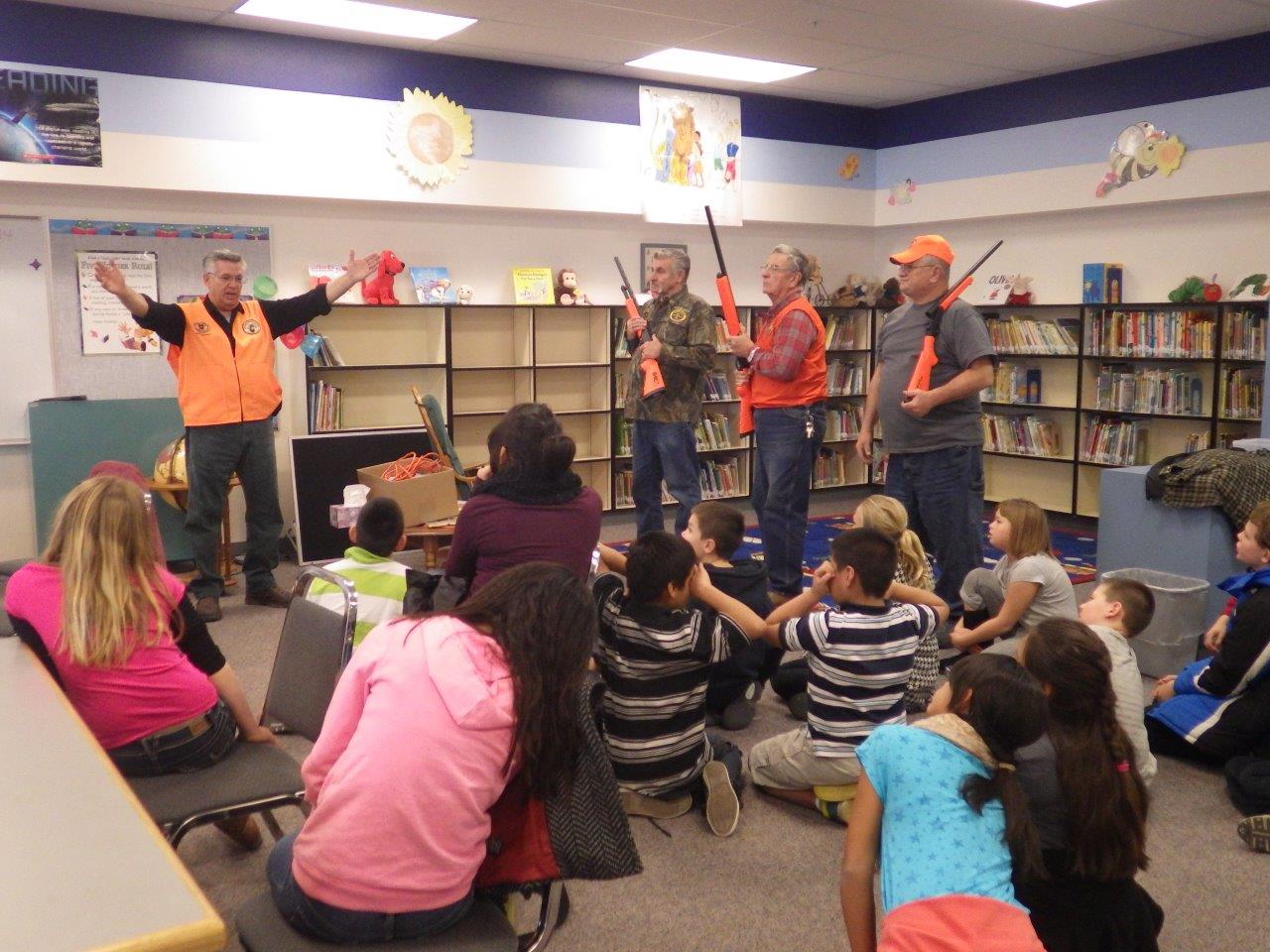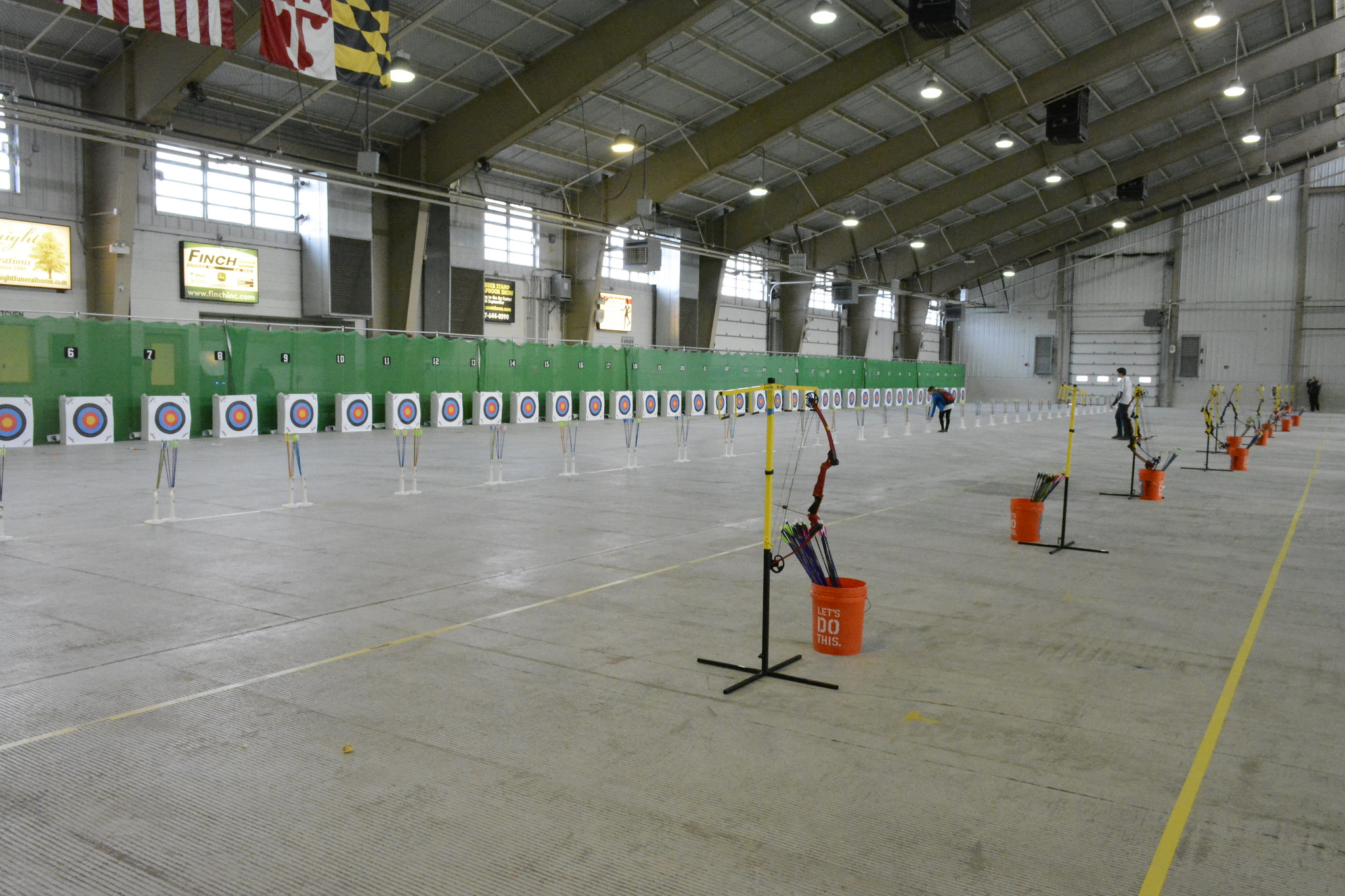[ad_1]
We could earn income from the merchandise accessible on this web page and take part in affiliate packages. Be taught Extra ›
Again in March, an administrator of public training funds in Alaska requested a routine query that has since reverberated round training, taking pictures sports activities, public coverage, and legislative circles. The administrator was looking for steerage: Are federal funds appropriated by the Bipartisan Safer Communities Act, which was handed in June 2022 by Congress and signed into legislation by President Biden a day later, okay to make use of in colleges that host the favored Nationwide Archery within the Colleges Program?
It was a wise query as a result of $1 billion in federal training funds launched in 2023 have been meant to put money into psychological well being packages for college students and communities, and NASP has been proven to raise college students’ achievement, participation, and sense of self-worth. However the Alaska administrator was hung up on a problematic interpretation of the legislation.
Part 13401 of the Bipartisan Safer Communities Act (BSCA), a realistic school-safety legislation handed in response to mass shootings at a grocery retailer in Buffalo, New York, and a college in Uvalde, Texas, sought to ban federal funds for use “for the supply to any particular person of a harmful weapon… or coaching in the usage of a harmful weapon.”
The concept, in line with legislators who inserted that language within the invoice, was that federal safe-community funds shouldn’t be used to rent college security officers or to coach cops who may be stationed at colleges. The availability confirmed that Congress didn’t need to set up federal funding for non-classroom personnel that might extra appropriately be employed on the discretion of native college districts. It is a basic local-vs-national management difficulty for a lot of of those legislators from each Republican and Democrat events.

A “harmful weapon,” has truly been outlined in federal code since 1968. It’s used to categorise numerous armed crimes and contains any “machine, instrument, materials, or substance, animate or inanimate, that’s used for, or is instantly able to, inflicting loss of life or critical bodily harm, besides that such time period doesn’t embrace a pocketknife with a blade of lower than 2-1/2 inches in size.”
The definition hasn’t been used broadly to ban academic supplies. However someplace within the ranges of the federal Division of Training, which oversees and distributes the funds appropriated by the BSCA, got here a willpower that colleges that sponsor NASP packages, together with state-sanctioned hunter education schemes, and even outdoor-skills packages that use axes and knives, could be ineligible for federal funds. The rationale: They promote “coaching in the usage of a harmful weapon” though the arrows utilized in NASP are tipped with goal factors and though hunter educators routinely use inoperable firearms of their lessons.
The Alaska educator’s query, and the feds’ subsequent willpower, has since rippled by the nation’s hunter training and college administration circles. Nationwide media retailers have picked up the problem as proof that the Biden administration needs to finish searching and is “defunding” hunter training. Hunter advocacy teams publicized plans to sue the federal authorities to overturn the rogue interpretation. And a bipartisan bloc of senators and representatives has indicated they are going to revise the laws to make sure that hunter training and archery packages are explicitly exempt from prohibitions on “weapons” in colleges.
A Sudden Freeze on Outside Applications
What the hell is occurring right here? How did a reasonably low-level functionary polarize what ordinarily could be forgettable laws? And now that a lot consideration is concentrated on the problem, can we ever return to easily educating college students in outside expertise?
Tommy Floyd has some insights into why the problem blew up. Earlier than he grew to become president of the Nationwide Archery within the Colleges Program, which trains about 1.3 million college students in practically 9,000 colleges in fundamental goal archery yearly—his program is without doubt one of the largest victims of this funding combat—Floyd was a Kentucky college superintendent.
“Any time a college administrator makes a funding resolution, they’re going to evaluate native, state, and federal funding sources,” says Floyd. “They need to do it appropriately, as a result of budgets and funding decide every part that occurs at a college, they usually can’t afford to get it fallacious. So once they hear that possibly you’ll be able to’t use federal funds for a program that makes use of ‘lethal weapons,’ they’re going to carry off on inviting that program into their college till they get extra readability.”
That’s exactly what’s occurring proper now, as educators across the nation are reconsidering their relationships with Archery within the Colleges, hunter training, and even common highschool entice and skeet groups, based mostly on that literal interpretation of BSCA. Within the case of NASP, this system has a sturdy 21-year relationship with the nation’s center and excessive colleges, the place this system is obtainable in PE lessons. Some 21 million college students have handed by NASP, and Floyd is fast to notice that over its existence this system has an unblemished security file.

“That is usually the time of yr that we’re coaching academics,” says Floyd. “Youngsters get taking pictures in October and November, and we begin having tournaments in February and March. So a college that decides to attend now, as they decipher the intention of the legislation, might be not going to get a program moving into time.”
Fall is equally the season for hunter training supply in most states, and Alex Baer, government director of the Worldwide Hunter Training Affiliation, who says the BSCE conflagration has prompted tons of of volunteer hunter ed instructors to name each their state coordinators and the nationwide IHEA workplace. Most instructors ask in the event that they’re prohibited from conducting lessons, which are sometimes held in native college services.
The reply is mostly no, hunter ed lessons are formally unaffected, as a result of few are held in colleges. However even when scheduled lessons haven’t been canceled, there’s a definite freeze on exercise of recent lessons, says Baer. The irony is that hunter training and NASP are constructed round instructing security and applicable use of archery tools and firearms.
Baer thinks the problem has been politicized on each side, first by public-education functionaries who’re pushing an agenda, but additionally by anti-Biden reactionaries who see on this small difficulty a a lot bigger assault on conventional values, expressed by hunter and archery coaching.
“It positive appears far-fetched to me to suppose that an act written round training, well being, and security in its title is designed to take away security packages,” says Baer. “I frankly doubt that was the intent.”
As an alternative, Baer sees a single, politically charged catalyst accelerating the controversy: the phrase “weapon.”
“Look, we exit of our means in our [hunter education and bowhunter education] lessons to not describe weapons or bows and arrows as weapons,” says Baer. “As an alternative, we name them ‘firearms’ or ‘archery tools.’ That will sound like a small, linguistically insignificant factor, however relating to the broader dialog over these gadgets, language is every part. And this misinterpretation of federal legislation is an effective instance of that.”
Steve Leath, government director of the Council to Advance Searching and the Capturing Sports activities, says the irony of this difficulty extends past linguistics.
“This administration needs to wave the American flag and thump their chest about our Olympians,” says Leath. “We had our first member of the Olympic taking pictures crew chosen final month, and we’re at present within the midst of the taking pictures and archery competitions that can decide our subsequent Olympians, and you’ve got the identical politicians celebrating their success reducing the very packages that educated many of those Olympians once they have been younger.”

Leath added that BSCA grew from the rise of mass shootings, a lot of which focused colleges and college youngsters. The premise of the invoice was to deal with what’s been referred to as America’s psychological well being disaster.
“I don’t see why we’d need to limit the nice work that’s being performed about gun security and gun dealing with within the context of our hunter training programs,” says Leath. “Why on earth would we need to take away instruments from communities that promote protected and accountable firearms dealing with?”
Lawsuits and Laws
Most solution-oriented observers of the problem have concluded that the basis of the problem is a reasonably easy misinterpretation of the laws, and that single problematic phrase. However given the extremely charged politics round public security, firearms restrictions, and taking pictures sports activities, even easy cures can get amplified into screeching rhetoric. That’s one method to clarify how numerous teams are responding.
Safari Membership Worldwide and america Sportsman’s Alliance Basis have filed an intent to sue the federal Division of Training and its secretary, Michael Cardona. The premise of the swimsuit: “the U.S. Division of Training’s misinterpretation of federal legislation to ban use of federal funding for taking pictures sports activities, hunter training, and outside education schemes in colleges.”
In a letter saying their intent to sue the Training Division, SCI and the SAF be aware that the division’s “issuance of an interpretation of federal legislation which impacts a broad scope of unspecified college packages and which is potential in nature is a rulemaking,” and due to this fact topic to public discover and remark, which wasn’t performed on this case. “The Division’s failure to supply this public discover and remark has, itself, contributed to the broad nationwide concern and outrage over the Division’s actions.”
In the event that they’re profitable within the lawsuit, the pro-hunting teams hope for a reinterpretation of the BSCA, says Ben Cassidy, SCI’s government vp for worldwide authorities and public affairs.
“Finish of the day, we hope to have the Division of Training and the Biden administration correctly interpret the legislation so it doesn’t take out outside education schemes like hunter training, archery, and firearms coaching,” says Cassidy. “Our swimsuit is meant to rectify that and have it interpreted in a matter the place these packages go on as they’ve, and hopefully see much more of them on the market sooner or later.”
A letter co-signed by 80 Democrat and Republican members of the Home and Senate have requested for reconsideration of the laws’s language. And two authors of the unique Bipartisan Safer Communities Act, senators John Cornyn (R-Texas) and Thom Tillis (R-North Carolina) have written to Cardona, asking that the Training Division “honor the textual content and the spirit of the BSCA and rethink its resolution to preclude funding” for archery and hunter security education schemes.
These packages fall squarely below actions eligible for federal training funding, the senators say.
“Such actions embrace packages that combine well being and security practices into college or athletic packages, help a wholesome, lively life-style, and improve college students’ efficient studying expertise,” the senators wrote. “Utilizing the BSCA as a pretext to shift vital academic and enrichment sources away from archery and hunter training lessons was by no means the intent of the legislation.”
A Fast Repair or Everlasting Drawback?
Though Congress is at present in its summer season recess, most sources count on the BCSA laws to be revisited with a purpose to verify that federal funds can be utilized in colleges that supply hunter training and archery packages.
Baer, on the Worldwide Hunter Training Affiliation, thinks it’s a fast repair.
“Provided that public and pupil security was the unique intention, it’s unlucky that misinterpretation grew to become the larger story,” says Baer. “Unlucky as a result of I feel hunter training and archery training and the instruction that goes with them are all necessary partial options to the issues of psychological well being, violence in our communities, and irresponsible firearms use.”
If the scenario can’t be rectified, and if outside expertise packages should not allowed in colleges, then hunter educators should pivot. That’s been occurring for years, notes Baer, as many native colleges have been uncomfortable with each the concept and the sensible realities of inviting firearms instructors into schoolhouses. The choice is extra dire for NASP, which is totally depending on being welcomed into colleges. It’s even in this system’s identify.

Floyd stated the actual victims shall be college students who don’t get an opportunity to expertise the life-changing alternatives supplied by NASP.
“We are saying our program is an archery program, nevertheless it’s actually a hit program,” says Floyd. “We simply use a bow and arrow to realize success; different folks use different instruments to achieve children. The principle level is the positivity that occurs for younger folks once they get uncovered to taking pictures sports activities and relationships with mentors and their classmates.”
And Leath, on the Council to Advance Searching and the Capturing Sports activities, notes that packages like NASP obtain the form of inclusion that’s turn out to be an necessary a part of educators’ lexicon and intent.
“Right here’s a sport, should you take archery, the place all people is welcome,” says Leath. “Doesn’t matter should you’re male or feminine or one thing in between. Doesn’t matter should you’re bodily configured to be a star athlete, you’ll be able to nonetheless be an excellent archer or take part at a enjoyable stage. Right here’s one of the crucial inclusive athletic actions accessible in America, and it’s weird to suppose that proper now on this [political] local weather we need to defund it.”
Leath thinks the problem has been supercharged largely due to a nationwide hypersensitivity concerning the intersection of weapons and colleges.
“We’re in an period the place there’s quite a lot of concern about gun security and inappropriate—even horrific—use of weapons, however I feel it’s necessary to emphasize that right here’s a case the place a lot good could possibly be performed with hunter security programs, and with creating constructive relationships between folks and inside communities, and I feel we needs to be discovering methods to have extra of those packages, not fewer.”
[ad_2]

